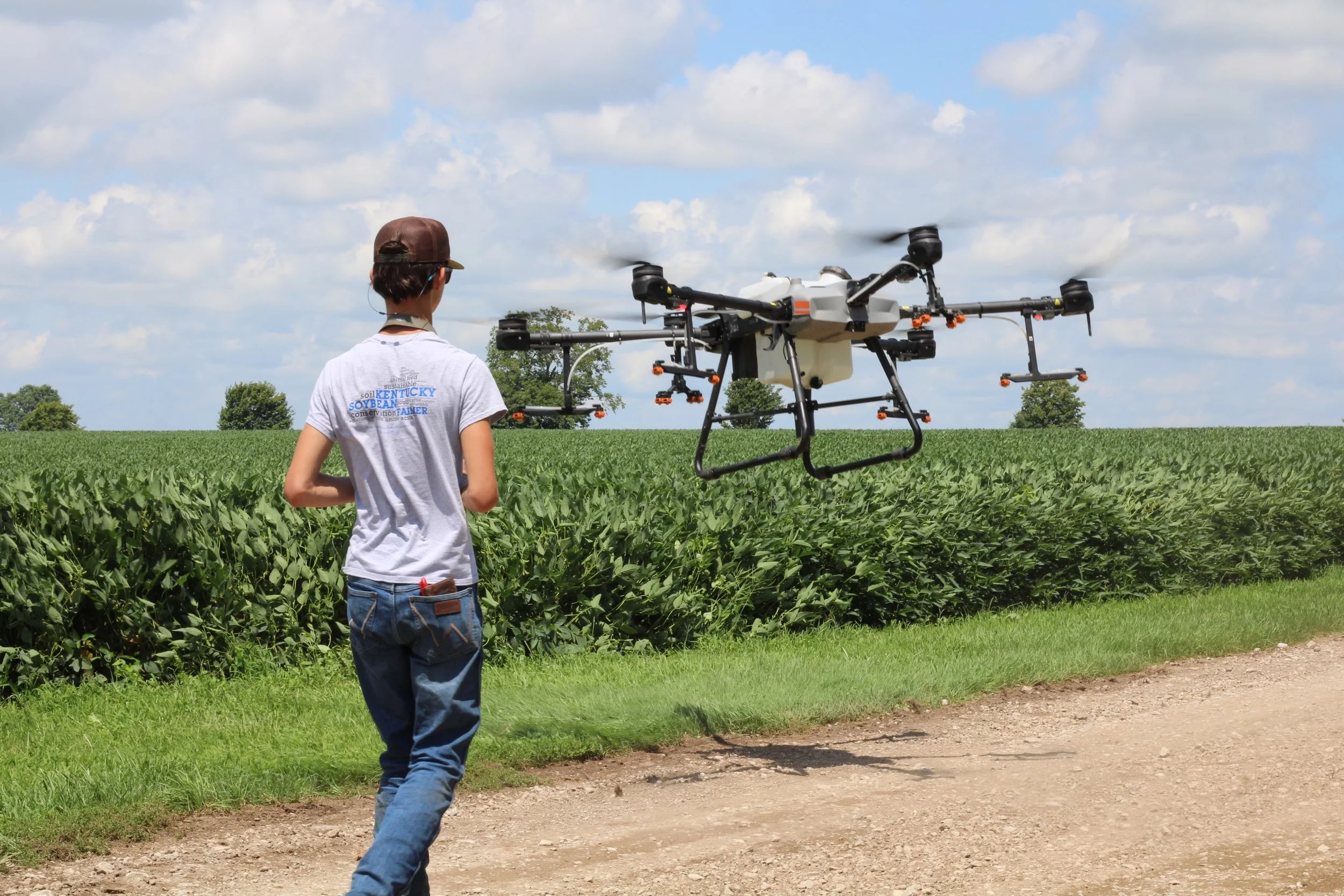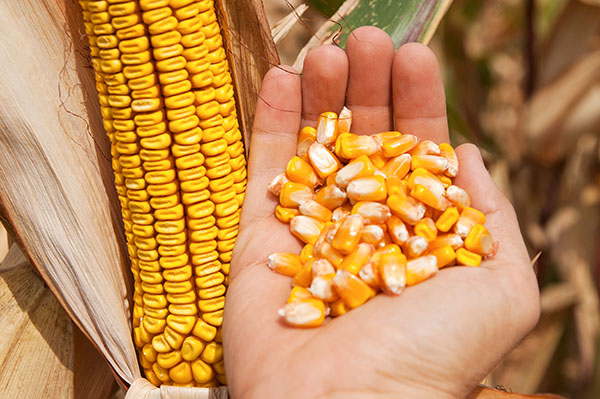In the heart of Kentucky, where verdant fields stretch as far as the eye can see, a quiet revolution is unfolding.
The traditional agriculture sector, once dominated by manual labor and basic machinery, is increasingly embracing technology. And with this shift, the demand for tech-savvy professionals in agriculture is growing exponentially.
One of the most exciting areas where technology and agriculture intersect is precision agriculture. This field is all about optimizing farming practices using technology. Precision agriculture professionals in Kentucky employ a suite of high-tech tools such as drones, satellite imagery, GPS technology, and Artificial Intelligence (AI) to monitor and manage crops. They use these technologies to boost productivity, minimize waste, reduce environmental impact, and ultimately make farming more profitable.
Data science is another rapidly expanding field in Kentucky's agriculture sector. Today, farming generates an enormous amount of data - from soil conditions and weather patterns to crop yield and livestock health. Data scientists in agriculture, often referred to as agri-data scientists, mine this wealth of information to provide actionable insights. They design predictive models, develop algorithms, and leverage machine learning to help farmers make informed decisions.
Software development is yet another booming tech career in Kentucky agriculture. As the industry becomes more technologically advanced, the need for customized software solutions is escalating. Agricultural software developers in Kentucky create applications for farm management, livestock tracking, crop modeling, and more. These tools empower farmers to manage their operations more efficiently and make data-driven decisions.
At the intersection of biology and technology, bioinformatics careers are taking root in Kentucky's agriculture sector. Bioinformaticians analyze complex biological data, such as genomic sequences of crops or pests. They use their expertise to develop improved crop varieties, design effective pest control strategies, and unravel the mysteries of plant diseases.
Furthermore, the role of cybersecurity in agriculture cannot be overstated. With the increasing use of technology in farming, the need to protect sensitive agricultural data from cyber threats is critical. Cybersecurity professionals in Kentucky's agriculture sector work tirelessly to safeguard farming data and infrastructure, playing a vital role in the industry's tech revolution.
The fusion of technology and agriculture in Kentucky is creating a host of exciting career opportunities. These tech careers are not only shaping the future of agriculture in Kentucky but also contributing significantly to the global movement toward smarter, more sustainable farming. For tech enthusiasts with a passion for agriculture, there has never been a better time to start thinking about a career in the Bluegrass State.
Organizations Working to Grow Agriculture Technology
Bluegrass AgTech Development Corp is helping cultivate an innovation ecosystem for entrepreneurs and startups in the agricultural sector. Launched in 2022, Bluegrass AgTech serves as a partnership of the Lexington-Fayette Urban County Government, the Kentucky Department of Agriculture, the University of Kentucky Martin-Gatton College of Agriculture, Food and Environment, and Alltech.
Kentucky AgriTech: An organization dedicated to the development and advancement of agricultural technologies in Kentucky, such as robotics, farm software, and more.
Latest News & Articles
Study, published Dec. 13 in Science Advances, involved the first on-site – rather than in a lab – demonstration of the technology.
“Please join me as we celebrate seven recent advancements that have changed how we farm for the better.”
From biosensors to data analytics and AI, modern dairy farms are embracing technology to ensure cow health and well-being.
Discovery offers a substantial understanding of how legumes have evolved.
Researchers at the University of Kentucky Center for Applied Energy Research (CAER) are investigating a new technology that they hope will give new life to Kentucky’s oil and natural gas wells.
Paducah was selected based on the wide breadth of agriculture, a rapidly-expanding STEM related workforce, and the incredibly supportive nature of the community.
We all know that greenhouse gas (GHG) emissions must decrease rapidly to limit global warming and prevent catastrophic climate change. The transportation sector is a big contributor to GHG emissions (approximately 30% of the US total emissions) and biofuels can play a significant role in reducing these emissions.
The University of Kentucky, Martin-Gatton College of Agriculture, Food, and Environment, is working to uncover the mysterious world of gene silencing in plants. Thanks to this research, scientists may develop more effective ways to improve crop yields, increase resistance to pests and diseases, and reduce agriculture’s environmental impact.
Discover how robotics is revolutionizing agriculture in Kentucky. From precision farming and crop monitoring to livestock management and data-driven decision-making, robots are enhancing efficiency, productivity, and sustainability in the state's farming practices. Embrace the transformative power of robotics and unlock the potential for a prosperous and sustainable future in Kentucky's agricultural landscape.
The USDA Natural Resources Conservation Service (NRCS) continually works with farmers across the country in the pursuit of improved water quality and finding ways to reduce plant nutrients and soil entering our nation’s waterways. The NRCS national Edge-of-Field Monitoring program, begun in 2013 and conducted in impaired watersheds across the country, measures best management practices to reduce surface water runoff from agricultural lands.
Network security is the backbone of digital operations, and farming is no exception. As farming equipment becomes more interconnected, the potential for cybersecurity breaches increases. A breach could compromise a farm's operations, leading to substantial financial losses and even potential safety risks.
Farmers are always thinking, and many spend a great deal of time trying to figure out how to bring their kids back to the farm or how to make their operation such that there is enough cash flow to support the next generation. One component of the agriculture industry that is especially appealing to younger farmers is that of precision ag.
With the rise of digital technologies, the attack surface for potential cyber threats has expanded. Cybercriminals can exploit vulnerabilities in connected farming equipment, data storage systems, and digital supply chains to cause severe damage. This could range from disrupting farming operations and stealing sensitive data to holding an entire supply chain hostage via ransomware attacks.
The agriculture industry, once synonymous with traditional farming techniques and manual labor, has transformed dramatically in the 21st century. Today, it integrates sophisticated scientific methodologies, modern technologies, and innovative practices. The agricultural landscape in Kentucky, known for its rich farming history and diverse agricultural output, has become a fertile ground for budding scientific careers.
In the heart of Kentucky, where verdant fields stretch as far as the eye can see, a quiet revolution is unfolding. The traditional agriculture sector, once dominated by manual labor and basic machinery, is increasingly embracing technology. And with this shift, the demand for tech-savvy professionals in agriculture is growing exponentially.
In the heart of the Bluegrass State, Kentucky, farmers are experiencing a technological revolution that is transforming their industry. Unmanned aerial vehicles (UAVs), commonly known as drones, have become indispensable tools in modern agriculture.
How do genetically modified crops affect the environment? TeachKyAg went to GMOanswers.com, a resource widely supported by its partners, to answer this question.
Along the rivers that snake across the Commonwealth, you’ll find a University of Kentucky researcher taking samples to study the health of the water flowing through the state.
As Barry Alexander drives a tractor across a soybean field on Cundiff Farms, his eyes are on a computer screen that shows his precise location, the speed of the tractor, exactly how much seed is being planted per acre and more. He can watch the screen closely because the tractor uses autosteer to move across the field in a straight line.
Gene editing is a technology that’s making headlines for the variety of ways it can be used to improve food and benefit the environment. This is an especially exciting time as scientists are seeing their research applied in the field, leading to food that is healthier, better quality and more sustainably produced.






















